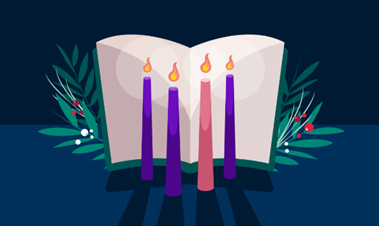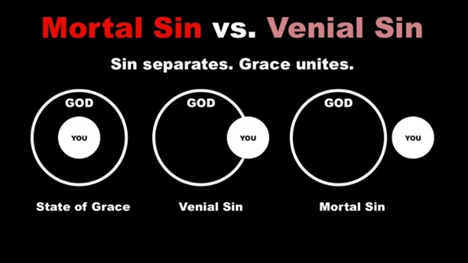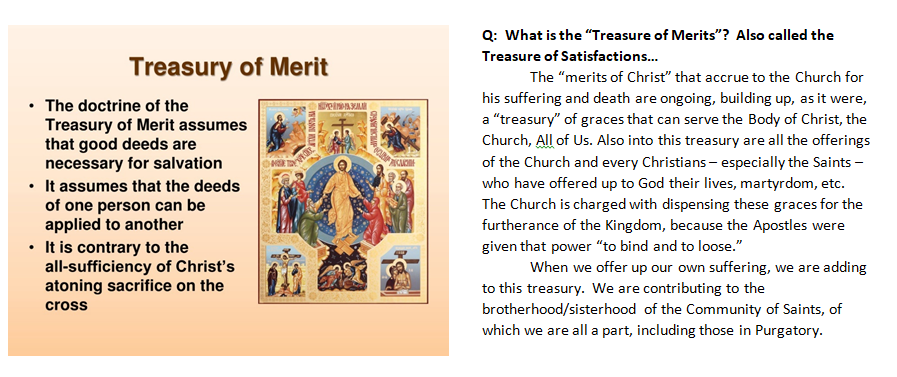11.22.22 Recap: Member Selected Questions
- tmaley
- Dec 1, 2022
- 12 min read
Northern Virginia Catholic Bible Study & Apologetics House rules/notes… 1. Meetup is www.meetup.com/catholicbiblestudy Zoom Meeting Logon info is the same every week: Zoom ID: 861 1782 2081 Password: 406952 2. Questions encouraged. If you have questions about anything, you can ask in the chat, email the Meetup group, or me directly at ron@hallagan.net. 3. Unedited recaps of meetings are posted via Meetup after our meeting. The final edited recap is posted within a week by Taylor on our Catholic Catacombs Light website at www.catholiccatacombs.wixsite.com/website/recaps. Taylor will notify everyone on Meetup with the link. 4. Respectfulness. We will be discussing differences between religions and between Christian denominations, and agree to be respectful at all times. Specifically, Protestants are our friends and brothers in Christ; in fact, I personally owe part of my return to the faith to them! 5. No politics. It would be easy for us to self-destruct, but that’s not our goal. Our goal is to learn/understand/apply the Bible and our Catholic faith. 6. Prison fellowship – opportunities to volunteer one Saturday per month for 2 hours (12-2 or 2-4) serving Catholic prisoners at the Fairfax County Jail. Ask Ron (ron@hallagan.net) or Gina (gmasterson99@gmail.com) for details. Why do this? "I was in prison, and you visited me." – Matt 25:36 7. Catholic Prayer & Fellowship. Are you interested in praying with other Catholics during the week? Fellow member Jason Goldberg has started just this at “Catholic Prayer, Fellowship, and Spirituality Meetup.” Sign up at: https://www.meetup.com/online-catholic-prayer-fellowship-and-spirituality/ 8. I highly recommend seeing “The Chosen” TV series. We seek a relationship with Jesus Christ, which is not easy at first. It helps when we can relate to a person that we have seen and heard. They have captured the real Jesus as close as any film I’ve ever seen. https://thechosen.link/1Y1R7. 9. RSVP Reminder: Please RSVP whether you are attending the meeting or just reading the Recap notes afterwards. The more RSVPs, the more Meetup will give us exposure, which will draw more people to us, which is our way of evangelizing! Please RSVP when you get the Meetup invite weekly. Our Bible Study Format: 5 min prayers, 10-15 min Catholic topic, 40-45 min on the main topic from weekly List below: Week 1: Nov 1 - Gospel Week: Mt 22:37: “Love the Lord your God with all your might…” Eph 5:21-33 "Wives be subordinate to husbands." Week 2: Nov 8 – Bible Week (Gen àRev): We recently started Exodus, the 2nd book of Moses. Exodus meeting #3. Week 3: Nov 15 – Survey Topics Voted on by Members: We are currently beginning Heaven.
Ö 1) Jesus’ Greatest Parables 2) Hell, Purgatory, Heaven 3) Christian Comparisons 4) Great Women in the Bible 5) World Religions 6) Book of Revelation 7) Major Heresies and Church Councils
Week 4/: Nov 22/29 – Member Questions Night
1. The History of the Mass going back to Cain & Abel, and the sublime meaning of the Eucharist in the present.
2. Love and Unity are two of the Holy Spirit’s Trinitarian descriptions. How are these different? How do they affect us?
3. The knowledge of God is “participatory.” Is that why nonbelievers have difficulty?
4. Are Charity and Love synonymous? How are they different? What are the 4 highest forms of Charity?
5. Do we have suffering for a reason? How do we offer up our sufferings? When should we embrace the cross vs wait for a miracle?
Church Holy Days Refresher:
Highest holy days are called Solemnities (24), followed by Feast Days, then Memorials, then Ferial Days (means free/optional). Of the 24 Solemnities, 6 are holy days of obligation that aren’t usually on Sundays (Mary Mother of God, the Ascension, the Assumption, All Saints Day, the Immaculate Conception, and Christmas).
Next Holy Days of Obligation
Advent – what is this about? Sun Nov 27 to Sat Dec 24
Immaculate Conception of Mary – Dec 8
Christmas – Dec 25
“Sometimes the only mode of transportation available is a leap of faith.”
- Margaret Shepard
Opening Prayer
O Lord
Thank you for your promise that where two or three of us are gathered in your name,
you are there.
We welcome You among us today.
We thank you for the gift of life, free will, and the love of knowledge that you have lavished upon each of us.
We ask that You open our ears so that we may hear your voice,
open our minds so that we may receive your wisdom,
and open our hearts so that we may be changed by message.
We meet tonight because you gave us two gifts by which to know you: faith and reason.
By studying your Word tonight, we put these two gifts together. We are YOUR bible study group!
Please assist us as we seek to better understand the questions put forth by the members in the group.
Also, we pray your blessings be upon every member here, and those who could not be.
Bless our lives, our health, our work, our families, and our friends.
We also pray those less fortunate than us and for all those suffering in our world today, especially in Ukraine.
Member Questions Night
NOV 29
1. What is sin?
2. What is justice?
3. What are Plenary and Partial Indulgences? Are they scriptural? Why are they demonized by Protestants? How can we get them?

Hope Peace Joy Love
What does Advent mean? (Advent in English, Parousia in Greek)
Some think it means “expectation,” but it actually means both presence and arrival. If you think of arrival, it is the beginning of presence, right?
That seems appropriate given that Jesus came already, and yet he is coming again at the end of time. His first presence and his coming presence – called Parousia (pair-oo-see’-uh), or Advent.
The same word applies to the Kingdom of God. It has arrived – “The Kingdom is at hand” – Mark 1:15. In this case, it refers first to Jesus being among them, second to his death and resurrection opening the gates of heaven to mankind, and third to our doing the will of the Father. Recall:
“Thy Kingdom come, they will be done, on earth as it is in Heaven” – Mt 6:10
The Kingdom has begun on earth to the extent the Church/Body of Christ/All of Us seek to do God’s will, but that is merely preparing the way, once again.
Why once again? Did someone prepare the way before? Did someone else seek to make straight the way of the Lord?
Yes, John the Baptist. And yes, Advent recalls Christ’s first coming to us. And we celebrate that, because without Mary and John the Baptist, God would have had to figure out an entirely new plan to save us.
But the Parousia (pair-oo-see-uh) – Advent – also looks forward to the final coming of the Lord on a day that is unexpected, and nobody knows. Will we be ready? That’s the question Advent puts to us. Are we doing our part to make straight the way of the Lord?
The first coming was monumental. A young woman with child. A star shining brightly overhead. Wise men giving gifts, lifting their eyes to heaven, wondering what comes next, and then being told in a dream to go home by a different route. The world was about to be changed. Mankind was about to be saved from itself.
The final coming will be even more spectacular. Unannounced, unexpected, trumpets sounding, LOVE come to conquer the remainder of earth. Let us make straight the way of the Lord.
Advent is the Presence Begun.
Speaking of making straight the way of the Lord…

What is Sin? The Latin origin for sin is a cross between the word sons (guilty) and es (to be). I think it’s fascinating that “to be” is another form of “I am,” which is God’s name, the name we tried to steal in The Fall. However, we need to add the word GUILTY to make it complete. I AM GUILTY… so fitting! What is sin? Sin is an injustice. It is intentional harm committed by one against another. The offense can be verbal, physical, monetary, mental, or emotional. BTW, in Christianity, “mental” also applies to the sinner. If a person simply THINKS he wants to harm another, it is sinful. Justice is a hot buzzword these days (any era, actually). Can anyone tell me why humans believe in justice? It’s a paradox. The expectation of justice is so deeply woven into our human nature that we’ll go to war or burn down cities if we think we’ve been “wronged.” Yet, how often do we see justice satisfied here in this temporal life? Ever? Never? Certainly, justice has never ever been sufficiently attained for it to have become part of our fundamental human identity. The paradox is answered by our spiritual natures, which are from God, who is perfect justice. This is what gives us our high expectations of justice in spite of the fact that perfect justice has never been achieved on earth. It makes complete sense when you consider the eternal nature of justice, which means that the final consequences of justice are not completed on the earthly battlefield.

What is justice?
Justice is a spiritual concept, similar to love, forgiveness, sacrifice, free will, good & evil, conscience, heaven, and eternity.
Why is justice spiritual?
For one because it came from God (God IS perfect justice). It was breathed into us when we received our spiritual natures.
Secondly, only free will beings struggle with justice, just like only free will beings commit sin. You won’t find “justice” or “sin” anywhere in nature. These are totally irrelevant concepts to the moon and stars, and to the plants and animals.
Another reason that justice is spiritual is because justice (fairness) is about right and wrong, and as any good atheist or secularist will tell you, there ain’t no such thing in this material world. Nevertheless, they can’t get around the enormity of justice in human affairs – it is simply embedded in who we are as humans; so, their only choice is to define right and wrong according to their own feelings or political beliefs, and call it a day. Unfortunately, this tends to makes “justice” more political than about right and wrong. People who scream justice and threaten violence: beware of wolves in sheep’s clothing.
Can you give an example of wolves in sheep’s clothing?
“The ends justify the means.” This is how the secular world can justify anything. It suggests you can fight with evil or hate (the means) as long as your promised goal (the end) is laudable.
It’s the opposite of “turn the other cheek,” in which Jesus was precisely advising us not to fight evil with more evil. The end justifying the means is like fighting fire with fire.
What is the point of all this?
The point is this is that sin, being tied to injustice, has an important eternal component to it.
When we commit a sin, the consequences are not just temporal (here in this life), but eternal. Because it’s part of justice; and perfect justice is not satisfied in this life (it rarely is), it will be satisfied in the next.

“For God will bring every deed into judgment, with every secret thing, whether good or evil.” – Eccl 12:14 Anatomy of sin Sin (injustice) always has two components to resolve: 1) removal of the sin/guilt, and 2) the punishment/penance. This is no different than any crime. For instance, if you end up in court for stealing a car, you first must “pay” for violating the law (grand theft auto) – perhaps by a jail sentence; secondly, you have to pay for the car (make the victim whole). It is similar in the Church. In fact, this Biblical concept is what gave way to the conception of justice in modern times (note the Ten Commandments on the U.S. Supreme Court building).
Offense Payment
Venial: 1) Removal of the sin (the guilt of choosing to offend another and God) is by requesting forgiveness/Confession.
(temporal) 2) Punishment: involves reconciling/repairing the damage caused, if possible, and prayer. This is called penance.
If #1 or #2 are not dealt with at all, or only dealt with partially, or imperfectly, we will be allowed to complete our repayment in Purgatory.
Mortal: 1) Removal must be formally accomplished with a sincere and contrite heart by a priest in Confession.
(eternal) 2) Punishment/penance will depend on the offense.

If #1 is not dealt with, the person will not make it to Purgatory.
If #1 is taken care of but #2 isn’t, assuming there are good reasons, I would presume this person could make up the rest in Purgatory.
Note: We are covering indulgences next, but there is a connection here. When you receive an indulgence, it only has the power to reduce #2. Indulgences cannot forgive or remove sins (#1). Only after you have received forgiveness for a sin can an indulgence be of any help to you (it can help reduce your penance/debt (#2).
And now you know why we covered the subject of sin before discussing indulgences!
Q#2: What are Plenary and Partial Indulgences? Are they scriptural? Why are they demonized so much by Protestants? How do we get them?
Indulgences rank among the most poorly understood blessings of the Catholic Church. Here is what it is NOT:
- An indulgence is not permission from the Church to indulge in sin.
- An indulgence is not being indulgent with sinners.
- An indulgence is not the pardon of sin nor the remission of guilt.
- An indulgence is not sold.
What is an indulgence?
Now according to the Catechism of the Catholic Church (CCC):
An indulgence is a remission before God of the temporal punishment due to sins whose guilt has already been forgiven, which the faithful Christian who is duly disposed gains under certain prescribed conditions through the action of the Church which, as the minister of redemption, dispenses and applies with authority the treasury of the satisfactions of Christ and the saints. [CCC 1471]
In other words, an indulgence is a lessening of the temporal punishment/penance to which we may be subject after our sins have been forgiven in exchange for good acts/deeds specifically requested or outlined by the Church.
Many Protestants think an indulgence is buying forgiveness. This has never been. Zero forgiveness. It only has to do with lessening one’s penance, if any.
The pious use of indulgences dates back into the early days of the Church, and the principles underlying indulgences extend back into the Bible itself.
The CCC states, “An indulgence is obtained through the Church who, by virtue of the power of “binding and loosing” granted to her by Christ Jesus, intervenes in favor of individual Christians and opens for them the treasury of the merits of Christ and the saints to obtain from the Father of mercies the remission of the temporal punishment due for their sins.” The Church does this not just to aid Christians, “but also to spur them to works of charity and devotion.” – CCC 1478
The Council of Trent (1545-63) stated that it “condemns with anathema those who say that indulgences are useless or that the Church does not have the power to grant them” (Trent, session 25, Decree on Indulgences). Trent’s anathema places indulgences in the realm of infallibly defined teaching.

What are Plenary and Partial Indulgences?
Indulgences are classified as Partial or Plenary.
A Partial indulgence is only a partial remission of one’s punishment/penance. A Plenary indulgence is a full remission, i.e., all temporal punishment for all past forgiven sins is removed.
An indulgence can be received by a Christian in the state of sanctifying grace who performs a prescribed good work. The person who performs the good work must have the intention of receiving the indulgence and faithfully fulfilling all requirements set by the Church. He must have received the sacrament of confession within 20 days of the act, receive the Eucharist within 20 days, and pray for the intentions of the Holy Father.
What about past claims that the Church sometimes sells or has sold indulgences?
This claim is false. The Church uses indulgences to encourage her members to perform good works. A few examples of good works are praying, attending Mass, reading the Bible and charity.
Works of charity can include the donation of money to help the poor (Sir. 3:30) or to promote the glory of God (John 12:1-8), such as the building of beautiful churches. Unfortunately, the latter has led to serious abuses in the hands of sinners.
The most infamous case of abuse involved a Dominican Friar named Johann Tetzel. In 1517 Pope Julius II granted a Plenary indulgence to all who confessed their sins, received the Eucharist, and contributed according to their means towards the construction of St. Peter's Basilica. Tetzel while promoting this indulgence in Germany charged a price for each. Perhaps due to too much zeal, Tetzel mistook the donation as an outright sale. By doing so he committed the serious sin of simony (the selling of spiritual gifts). Martin Luther reacted to this abuse with his Ninety-Five Theses which launched the Protestant Revolt. Later the Council of Trent passed strict laws concerning indulgences in order to prevent further abuses.
In summation, an indulgence is a favor, like “grace,” which can only be given by the Church for certain described conditions for the reduction of one’s temporal punishments still due.

A Psychological Examination of Martin Luther
Luther was a brilliant theologian. He was also deeply imbued with the understanding of the absolute holiness of God, the centrality of Christ in the work of our salvation, and the concomitant need for the Church to be the spotless Bride of the Redeemer which St. Paul calls her.
All that said, Luther was also a vicious anti-Semite; one given to exaggeration and extremes, taking no prisoners; a crude man whose language would be constantly “bleeped” even on modern television. The ex-nun whom he took as a wife he treated with arrogance and disdain. His apparent inability to be faithful to his vow of chastity drove him to near despair. To say that he was a conflicted individual is to succumb to understatement (as late as 1521, he was still willing to admit the necessity of the Petrine office in the Church). Even the most ardent supporter of the Reformation would never accuse Luther of being a model of Christian holiness.
He believed God expected spotlessness, and he fretted about ever achieving that. By developing the idea of Sola Fides (faith alone is necessary), he eliminated the need to worry about spotlessness.
Closing Prayer
Fix My Heart Lord
Create a clean heart in me, O God:
a humble heart, a meek heart, a sturdy heart, a devout heart,
a kind heart which does harm to no one,
which does not repay evil for evil,
but overcomes evil with good,
a heart which loves you above all things, thinks about you always,
and speaks to you and about you,
a heart that gives you thanks, delights in your psalms and hymns,
and has its citizenship in heaven. Amen.
Hail Mary, full of grace the Lord is with thee. Blessed art thou among women, and blessed is the fruit of thy womb, Jesus. Holy Mary, Mother of God, pray for us sinners now and at the hour of our death.
Amen.



Comentários